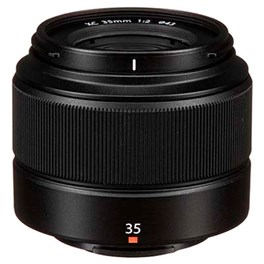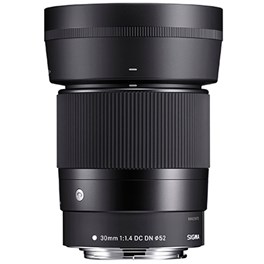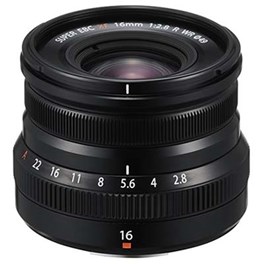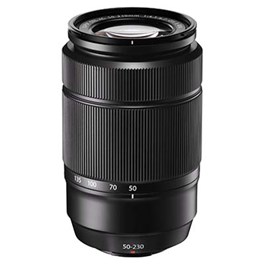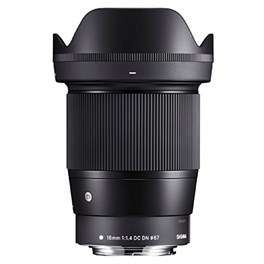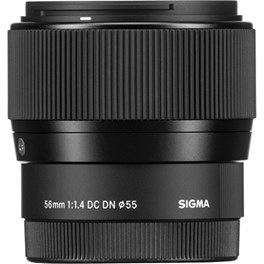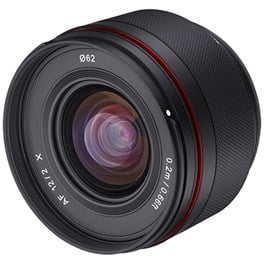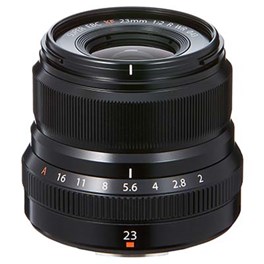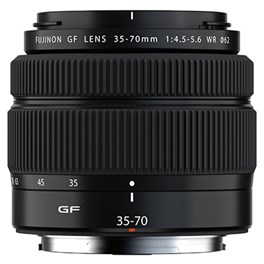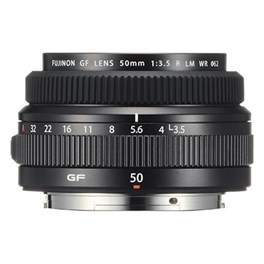
If you’re looking to expand your Fujifilm kit but have a bit of a tight budget, don’t fret – we’re here to help with ten affordable lenses for Fujifilm users. While Fujifilm isn’t the cheapest camera system, there are plenty of cheaper lens options available, probably more than you’d think. Fujifilm actually has a whole line of lenses – the XC lenses – for those who want something a bit cheaper for X-mount.
Of course, we’re not just talking about X-mount, as Fujifilm also has its range of mirrorless medium format GF-mount cameras to think about. While we’ve devoted most of this guide to the APS-C X system, as we suspect that’s what most users will be looking for, we’ve included a couple of relatively affordable GF options in their own section, for those who want medium format options.
We’ve included Fujifilm-made lenses and some cracking options from third-party manufacturers. All our options for X-mount come in at less than £499 each, while our GF-mount recommendations are on the right side of £999. Let’s take a closer look…
Quick Navigation
Affordable Fujifilm X Lenses
When buying lenses for the Fujifilm X system, you may have noticed that most of the Fujifilm-made options are labelled ‘XF’, while some are labelled ‘XC’. The difference between XF and XC lenses is that XC denotes the budget options. These more affordable lenses have a mostly plastic construction, including the mount, while XF lenses are mostly metal. However, this isn’t to say that XF lenses are totally off-limits for the budget buyer, as there are a fair few reasonably priced XF options, as you’ll see on our list.
The Fujifilm X-mount also has a number of third-party manufacturers contributing affordable alternatives to the higher-end Fujifilm lenses. Don’t be afraid to look beyond the Fujifilm name if you’re hunting for great lenses at affordable prices.
One last thing – remember that Fujifilm X cameras use APS-C sensors, so a crop factor of roughly 1.5x applies to the stated focal length of every lens, i.e. a 50mm lens will behave like a 75mm lens, etc.
Fujifilm XC 35mm f2 Lens
The Fujifilm XC 35mm f2 is a new prime lens that offers an equivalent focal range of 52mm in 35mm format. What it brings to the table is a lightweight and highly portable design and delivers edge-to-edge sharpness in every image it takes. The lens is constructed from nine elements in six groups, including two aspherical lens elements. Autofocus is brought to us via an internal focussing system and stepping motor which in turn offer near-silent, fast and accurate AF performance. Finally, the lens features a 9-rounded diaphragm which produces beautifully smooth bokeh.
£159.00 View
Pros:
- Useful 52mm equivalent focal length
- 9-bladed diaphragm
- Near-silent autofocus
Cons:
- No aperture ring
- All plastic, including mount
Cheap standard primes crop up on most systems, but the Fujifilm XC 35mm f2 is a cut above the average. Delivering images with an equivalent focal length of 52mm, it produces impressive sharpness and contrast, with excellent minimising of distortion and aberration as well as basically no vignetting. The 9-blade aperture means you can make the most of that f/2 aperture and throw the lens wide open for beautiful shallow depth-of-field images with lovely bokeh. The focusing is almost silent too, which is good for video.
Naturally, there have been sacrifices to get the lens to this price. The all-plastic build is to be expected given that this is an XC lens, however something especially worth noting is that the lens doesn’t have an aperture ring. It’s perfectly possible to change the aperture via the camera controls of course, but the experience is nowhere near as smooth. Still, that’s how you get a lens that’s less than half the price of the XF 35mm f2 R WR – though if you need weather resistance, you’ll need to save for the XF lens.
Sigma 30mm f1.4 DC DN Contemporary Lens for Fujifilm X
A wholly versatile lens, the Sigma 30mm f1.4 DC DN Contemporary Lens exhibits an array of advanced and modern technology that helps to produce outstanding image quality. The lens is equipped with an intricate arrangement of lenses that is complemented by a powerful autofocus system and a high level of flexibility available only by its maximum f1.4 aperture diaphragm.
£319.00 View
Pros:
- Really pin-sharp
- Lightweight build
- f1.4 with great bokeh
Cons:
- No aperture ring
- No built-in stabilisation (though that’s normal at this price)
Running a little wider than Fujifilm’s own standard primes, the Sigma 30mm f1.4 DC DN Contemporary delivers a 45mm equivalent focal length, which is great for street photography. Its f1.4 aperture gives you real versatility, both in terms of low light and shooting with a shallow depth of field (the bokeh quality is great too, thanks to the 9-blade aperture). Once again there’s no aperture ring, which may turn off a few Fujifilm users, but the lens’ weight of 275g means it balances well on Fuji bodies and lends itself to being carried around all day.
Sharpness is great – Sigma has done a fantastic job here. The lens produces terrific images in a range of conditions, and focuses quickly and near-silently thanks to its stepping motor. The minimum focusing distance is just 30cm, meaning you can get in close to your subjects.
Fujifilm XF 16mm f2.8 R WR Lens - Black
Available in black and silver
The Fujifilm XF16mm f2.8 R WR Lens is a welcome addition to the Fujifilm X-Series lens line up. It's the perfect lens for architecture, landscape and low-light photography. This is thanks to the wide focal range and the wide and bright f2.8 aperture. It features an inner focusing system driven by a stepping motor that in turn provides fast, quiet and accurate auto-focus.
£339.00 View
Pros:
- Useful wide-angle focal length
- Weather-resistant metal build – with aperture ring
- Excellent sharpness, especially in the centre
Cons:
- No stabilisation
- Some corner softness when used wide open (as you’d expect)
As this is an XF lens, you get that glorious all-metal build, as well as an aperture ring, meaning you can use your Fujifilm setup as it was meant to be used. The Fujifilm XF 16mm f2.8 R WR is a stunning performer – while it’s recommended for architecture and other typical applications of a wide-angle, the 24mm equivalent focal length is often favoured by photojournalists and documentary shooters for its ability to capture a wide scene without distorting too much. Try the lens out and see what works for you.
There’s very little to criticise about this lovely lens. It’s not stabilised – but you’d expect that at this price. Sharpness is consistently excellent, especially in the centre of images. You have to open it up all the way to f2.8 before you start to see a little corner softness, and again, that’s completely in line with what we’d expect from a lens like this. As one of the cheapest XF lenses, this should definitely be on the list for any Fujifilm mirrorless user.
Fujifilm XC 50-230mm f4.5-6.7 OIS II Lens - Black
With 13 all-glass elements in 10 groups, the Fujinon XC 50-230mm f4.5-6.7 OIS II lens delivers advanced optical performance across its focal range to produce clear, sharp images. The lightweight focusing lens and high-precision motor guarantee quick and silent autofocusing, whilst the optical stabilisation reduces camera shake during hand-held shooting. The zoom range of the Fujifilm 50-230mm f4.5-6.7 OIS II XC Lens begins at 76mm and goes to 350mm in 35mm format equivalent, making this a lens suitable for every day, all-purpose shooting.
£349.00 View
Pros:
- Generous telephoto zoom range
- Built-in optical stabilisation
- Speedy stepping motor autofocus
Cons:
- Max aperture drops sharply at tele end
- Not weather-sealed
An equivalent focal range of 76-350mm makes this far-reaching lens a great one of those who want serious telephoto reach on a budget. It’s an XC lens once again, so you have to make your peace with a plastic build and lack of weather sealing, but that’s pretty much the only way you’re going to get this kind of range at this price.
Plus, the Fujifilm XC 50-230mm f4.5-6.7 OIS II does manage to fit in some features that other XC lenses lack – most notably, optical image stabilisation. Providing up to 3.5 stops of effective compensation, this makes the telephoto end of the lens much more useable than it otherwise would be, making it easier to get sharp images handheld. Though bear in mind that you’ll be working with a maximum aperture of f6.7 at that setting, which could make things difficult when light levels get low.
Sigma 16mm f1.4 DC DN Contemporary Lens for Fujifilm X
True to Sigma’s line of Contemporary Lenses, the 16mm f1.4 DC DN Lens is a carefully constructed wide-angle lens incorporating the essentials of modern technology into a compact, lightweight build. Offering an intricate arrangement of 16 elements in 13 groups complemented by a powerful autofocus system and a maximum f1.4 aperture, this lens provides image quality that rivals the Sigma Art Series.
£389.00 View
Pros:
- Large aperture is great for low light
- Lightweight construction
- Produces crisp, sharp images full of contrast
Cons:
- No aperture ring
- No optical stabilisation
A high-performing wide-angle, this Sigma lens is a great alternative to the XF 16mm f2.8 R WR if you have a little more room in your budget – and all things considered, it’s still very reasonably priced. Even though it’s one of Sigma’s “Contemporary” lenses, it performs well enough optically to be compared to a lens in the high-end “Art” series.
Three FLD glass elements, two SLD glass elements and two moulded glass aspherical elements ensure pin-sharp images virtually free from distortion and aberration, while the Super Multi-Layer coatings do an excellent job of controlling flare and ghosting. The end result is a lens that consistently produces punchy and vibrant images, the perfect partner for Fujifilm X cameras and their exemplary colour science. The Sigma 16mm f1.4 DC DN Contemporary is also reasonably lightweight, even with an f1.4 aperture.
Sigma 56mm f1.4 DC DN Contemporary Lens for Fujifilm X
Sigma’s 56mm f1.4 DC DN Contemporary Lens is characterised by its compact, sleek and lightweight build, along with its exceptional imaging capabilities. The lens is packed with an advanced array of lenses and versatile maximum f1.4 aperture that when combined, rival its cousins in the Sigma Art Series. This mid-telephoto lens is set to impress both enthusiasts and professionals alike.
£419.00 View
Pros:
- Ideal focal length for portraits
- Weighs just 280g
- Top-notch image quality
Cons:
- No stabilisation
- No aperture ring
If you’ve always loved the idea of Fujifilm’s 56mm f1.2 lens but can’t quite make it work for your budget, the Sigma 56mm f1.4 DC DN Contemporary is a fantastic, low-cost alternative. In full-frame terms, 56mm on a Fujifilm X camera works out to an equivalent focal length of 84mm, making this an ideal lens for shooting portraits. The f1.4 aperture is great for throwing out the background of an image, and the sophisticated optical design of this lens produces punchy images virtually free from distortion, aberration or flare.
It’s got all the characteristic foibles of the Contemporary lenses for X-mount – no aperture ring, no stabilisation, fairly limited weather sealing. If none of those are deal-breakers, it’s a fantastic way to save money on a lens that’s capable of capturing truly stunning portraits. Plus, at 280g it’s the lightest of the f1.4 Contemporary primes, so won’t weigh down your kit bag.
Samyang AF 12mm f2 Lens for Fujifilm X
As Samyang’s first AF lens specific to Fuji X-mount mirrorless cameras, the Samyang AF 12mm f2 delivers outstanding image quality and a vast 99.1° ultra-wide field of view. This is incredibly beneficial for landscape photographers, whilst the large-diameter aperture, 20cm minimum focusing distance, and newly integrated AF performance suit high-end portrait photography and video productions.
£302.00 View
Pros:
- Ultra-wide field of view
- Close focuses at 20cm
- Weather-resistant
Cons:
- Soft corners at large apertures
- No aperture ring
Samyang used to be known for its manual focus lenses, but in recent years has come out with a range of AF lenses for different systems. The Samyang AF 12mm f2 is the first autofocusing lens Samyang has made specifically for Fuji X-mount, and it provides an extreme wide-angle 18mm view that’s great for expansive vistas and architectural images.
It’s at its best when stopped down – when used wide open, the lens does produce some softness in the corners of images, though this is something of a fact of life with wider angles. Keep your subject to the centre of frame when shooting wide-open and you shouldn’t have any significant problems. Overall, it’s great to see such an affordable AF wide-angle available for X-mount, especially one that is weather-sealed and so lightweight to carry. A worthy addition to any Fujifilm X shooter’s kit bag.
Fujifilm XF 23mm f2 R WR Lens - Black
The Fujifilm XF 23mm f2 R WR is a compact, weather-resistant lens that offers a 35mm equivalent focal length in full frame, making it perfect for travel, street, and portrait photographers. It has a fast and bright f2 aperture that makes it suitable for lower lighting conditions. Furthermore, the f2 is comprised from 9 diaphragm blades that are able to deliver beautiful bokeh and shallow depth of field.
£415.00 View
Pros:
- Street-friendly focal length
- Weather-resistant build
- Terrific image quality with smooth bokeh
Cons:
- No optical stabilisation
If you, like many photographers, have always loved the idea of the Fujifilm X100VI compact but perhaps you already own an x-mount camera body, and can't justify another camera (like me), this may be the lens for you.
A 23mm optic, working out to a 35mm equivalent on an APS-C sensor, is the lens used on the X100V, and is one of the reasons that camera is so beloved by street photographers – it’s an ideal focal length for street snapping.
While this isn’t the exact same lens as featured on the X100VI – it’s not optically stabilised, for one – it does still deliver fantastic image quality with beautiful bokeh in the defocused areas of images. Also, it’s an XF lens, meaning you get a lovely metal build with an aperture ring for intuitive control. The Fujifilm XF 23mm f2 R WR is weather-sealed, too.
Affordable Fujifilm GF Lenses
Fujifilm GF 35-70mm f4.5-5.6 WR Lens
The Fujifilm GF35-70mm F4.5-5.6 WR stands as an incredibly versatile, lightweight, and compact GF-Mount zoom lens. It has a vast 28 - 55mm focal length (35mm equiv.), fast-action AF system, as well as a 0.28x max magnification. At 440g, this lens weighs less than half of the earlier GF 32-64mm F4 R LM WR lens, which is a significant advantage for event photographers and freelance videographers.
£849.00 View
Pros:
- Versatile standard focal range
- Weather resistant and light
- Gorgeous colour rendering
Cons:
- Not the fastest maximum aperture
- No aperture ring
Offering outstanding value for money in the GFX system, the GF 35-70mm f4.5-5.6 WR still delivers the kind of stunning quality that Fujifilm medium format shooters have come to expect from the series. It covers a wide-to-standard focal range of 28-55mm, and uses a stepping motor to ensure fast focusing action – as little as 0.17sec when used with a GFX100 camera. When combined with the Face/Eye detection modes, this can be brought down to as little as 0.13sec, which is frankly incredible for a medium format system.
The lens is also weather-resistant, so you can take it outside without fear. It produces dazzling images with edge-to-edge sharpness and clarity, and can focus in as close as 25cm. It’s a great lens for a huge range of applications, and the fact that it’s the cheapest in the GFX system certainly doesn't hurt.
Fujifilm GF 50mm f3.5 R LM WR Lens
The Fujifilm GF 50mm f3.5 R LM WR lens further expands the company's lens line-up for their medium format GFX series cameras. The 50mm f3.5 achieves the same pristine optical performance as found across the rest of the range, while offering the desirable 40mm equivalent focal range. Weighing just 335g and measuring in at a modest 84x48mm, this compact lens is portable, making it ideal for street and travel photography.
£949.00 View
Pros:
- Light and durably built
- Very, very sharp, all the way to the corners
- Capable, speedy autofocusing
Cons:
- Quite bulky for a 50mm prime
- Minimum focus distance of 55cm
With a 40mm equivalent field of view, the Fujifilm GF 50mm f3.5 R LM WR is a standard prime that will no doubt find favour with GFX shooters who want to give street photography a go. And, thanks to the impressively capable and snappy autofocus system on this lens, they’ll likely find themselves having more success than they might have expected (assuming technique is up to scratch, of course).
While it’s on the bulky side for a prime of its type, this lens delivers absolutely unreal sharpness, right the way to the corners of images – there’s no distortion, aberration or fringing to speak of. Having an f3.5 maximum aperture is handy too, and we appreciate that the lens is weather-sealed, but not too heavy. It squeaks under our sub-£999 limit, and we reckon if offers fantastic value for money.

FAQs
What is the difference between prime and zoom Fujifilm lenses?
Prime lenses have a fixed focal length, offering superior image quality and wider apertures, while zoom lenses have variable focal lengths and are versatile for various shooting scenarios.
Are Fujifilm lenses compatible with other camera brands?
Fujifilm lenses are not compatible with other camera brands due to the proprietary X-mount system. They are designed specifically for Fujifilm X-series cameras.
What is the weather resistance rating of Fujifilm WR lenses?
Fujifilm WR (Weather-resistant) lenses are designed to withstand moisture and dust, making them suitable for outdoor photography. However, the level of weather resistance can vary between models.
What is the difference between OIS and non-OIS Fujifilm lenses?
OIS (Optical Image Stabilisation) lenses have built-in stabilisation to reduce camera shake, especially in low-light conditions. Non-OIS lenses lack this feature and may require a tripod for stable shots.
Can I use Fujifilm X lenses on Fujifilm GFX cameras?
No, X-mount lenses are not compatible with GFX cameras. X-mount lenses are physically smaller and designed exclusively for Fujifilm X-mount cameras.
How do we decide?
Our in-house photography experts, store staff and partners all work collaboratively to pour over these guides. The cameras and equipment recommended in our guides are based on their personal opinion, empirical experience and of course, feedback from our customers.
We way up price, features, quality and the all-important 'je ne sais quoi' to make sure we recommend products that will delight and inspire.
If you would like more advice on any purchase our contact centre staff are here to help. Alternatively, you can reach us via email or social media.
And don't forget. If you were to purchase anything based on our recommendations you'll be covered by our full returns policy
Buying Guides

